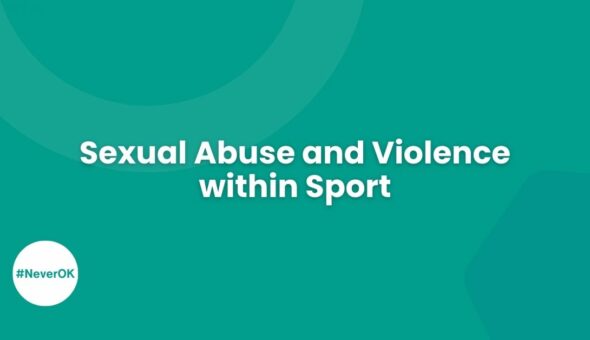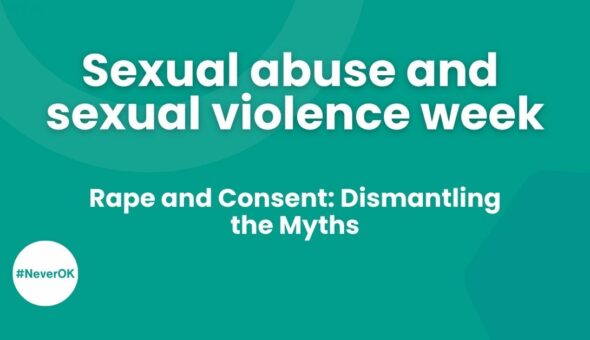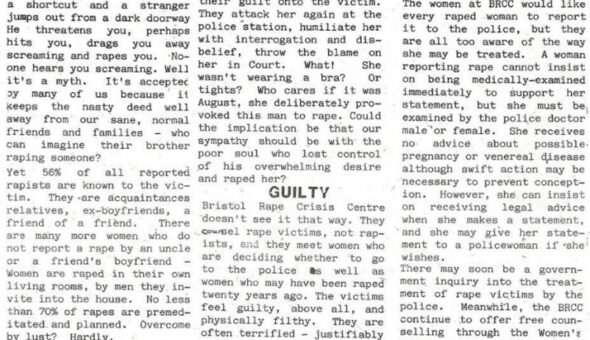On the 8th of March each year, International Women’s Day is used to celebrate the achievements of women, raise awareness of issues facing women and to strive for equality. It is also used to launch a theme for the year. Last year’s theme was ‘Be Bold For Change’. Today seems like a good day to reflect on this theme, and my, was 2017 a year when women were bold….
On the 13th March, just following International Women’s Day, HEFCE (the Higher Education Funding Council for England) announced that it had awarded funding to over 60 Universities in the UK to tackle sexual violence on campus. This funding had been made available following a Universities UK (UUK) report into the levels at which sexual violence was being perpetrated on UK campuses. The work of UUK is important here, but let us also remember the decades of activism, particularly student activism, that led to UUK convening a taskforce and writing its report. The NUS Hidden Marks report was instrumental in raising awareness of sexual harassment on campus, and this was instigated by the work of individual students and groups of students fighting for recognition of their experiences on campuses all over the UK, for many years.
Many of the projects launched in Fresher’s week of 2017, including here at Bath.
A number of reports had highlighted the following statistics:
A Drinkaware survey of over 2,000 students found that:
- 54% of 18-24 year old female students experienced sexual harassment on nights out.
- Of these women, half said that this is experienced most or every time they go out, suggesting that this is a normalised experience.[i]
An online NUS survey[ii] of 2,058 female students found that:
- 14% had experienced a serious physical or sexual assault during their time as a student.
- 68% reported that they had been subject to verbal or physical sexual harassment on campus and some of these experiences were on a daily basis, again representing normalised behaviour.
Many of us suspected (or knew) that the statistics here reflect a much wider societal issue, not confined to campus communities. However, this knowledge wasn’t necessarily reflected or acknowledged in wider culture.
And then October happened.
On the 5th October, the New York Times published an article alleging 3 decades of abuse by Harvey Weinstein towards employees of his company, and a number of actresses. On the same day, Rose McGowan and Ashley Judd public alleged that they experienced sexual violence at the hands of Harvey Weinstein. Over the coming weeks and months, 80 women have come forward to allege assault perpetrated by Weinstein.
The #MeToo phrase, originally used by Tarana Burke – a US Civil Rights activist – was popularised on twitter by actress Alyssa Milano. The phrase has been posted millions of times online since then.
Let’s just take a moment to think about what this means. It is incredibly difficult for victims/survivors of sexual assault to speak out, for a whole range of reasons.
I have discussed with a number of friends who been sat in front of their screen, typing their story, and then deleting it, and then re-typing a less brutal version, and then deleting it, and worrying about what people with think and if their Mum will be worried when she sees it, and do they really want people to know?
Repeated. Millions of times. Being Bold for Change. Millions of times.
And then came Westminster, and the theatre industry, and the aid agencies, and the fashion industry, and The President’s Club, (and two actual Presidents of the USA) and all the rest. Each case raised by a women, and men, boldly speaking out.
This tsunami of disclosures started to open society’s eyes to the issues faced by women, every day. At university, at work, in the street, on public transport, on night’s out. It’s pervasive.
The lid has been lifted on this issue and it isn’t going back on. From this, a wider conversation has started. Never have I witnessed so many mainstream news stories about gender. Sexual harassment, the gender pay gap, and lack of diversity in leadership, power and equality... the list goes on.
So what now?
Progress was achieved over the last year. Huge progress. Open discussion about what constitutes sexual harassment; whether that is a micro-aggression (calling a grown-up female colleague a ‘girl’) or recognising night club groping as an act of sexual violence, these conversations are becoming the norm. The end of grid girls, walk-on girls, The Presidents Club and indeed, ‘showgirls being used to sell roof tiles’. Seriously. This was an actual thing.
However, that progress was the tip of the iceberg. 0.1% of the amount of work that needs to be done to achieve gender parity.
The theme launched today, on International Women’s Day, is Press for Progress. To keep the momentum going. To work towards equal pay (sooner than in 217 years’ time please), ending sexual violence and violence towards women, and creating study and work and living spaces where women, men, and members of the trans and non-binary community feel genuinely equal.
We are working on it here at Bath. But we know that we have much more to do. We will be launching a number of initiatives over the next few months including:
- An online reporting tool
- A disclosure pathway for all staff on how to support students who have experienced sexual assault (see below for guidance)
- Further specialist training for all our support workers (Wellbeing Advisors, Security Staff, the SU Advice Team and HR managers)
- Offering Bringing in the Bystander training® as widely as possible to staff and students across the University
In the meantime, you can help us to Press for Progress by:
- Picking up a #NeverOK badge from the Roper Centre helpdesk in 4 West.
- Supporting our new poster campaign challenging rape myths. If you would like some of these posters to put up in your department please email r.stephenson@bath.ac.uk
- Look out for opportunities to attend the Bringing in the Bystander® training, and ask for this to be delivered in your departments – more information coming soon.
- Challenge the small things; inappropriate comments, rape jokes and comments that blame victims/survivors for their own experiences.
In 2017, women were bold. So incredibly bold.
In 2018, let’s all Press for Progress.
[i] https://www.drinkaware.co.uk/press/students-call-for-universities-to-take-action-against-drunken-sexual-harassment/
[ii] https://www.nus.org.uk/Global/NUS_hidden_marks_report_2nd_edition_web.pdf
If you have been affected by sexual harassment or violence, you can contact Student Services via email or by calling 01225 383838, or come to the drop-in sessions in 4 West.
Alternatively, you can go to the SU Advice Centre in the Student Centre. You can also email them, call them on 01225 386906 or use the 'report an issue' button.
You will be believed. You will be taken seriously. You won't be pressured to make a formal report. When you talk to us, it is in confidence.
If you are a staff member supporting a student, you can call 4321 for advice and support. If you are a staff member who needs support themselves, you can access the Employee Assistance Programme or talk to your HR Business Partner.
Outside of the University, you can contact The Bridge, the Medical Centre, or the police directly.
Respond




